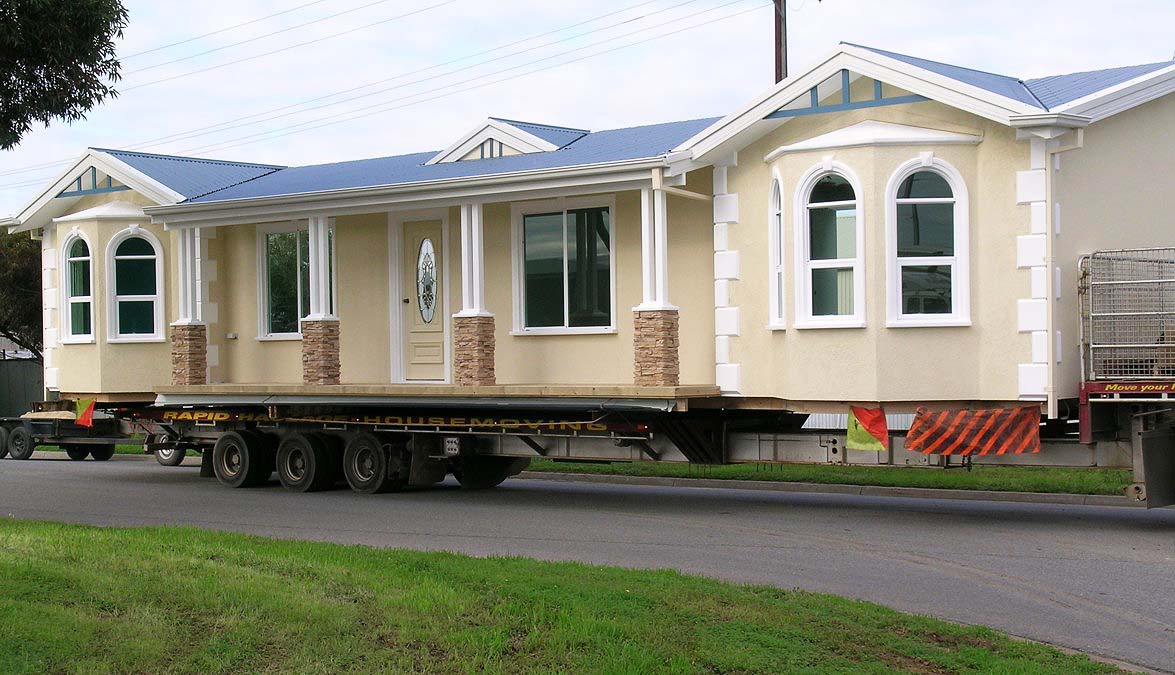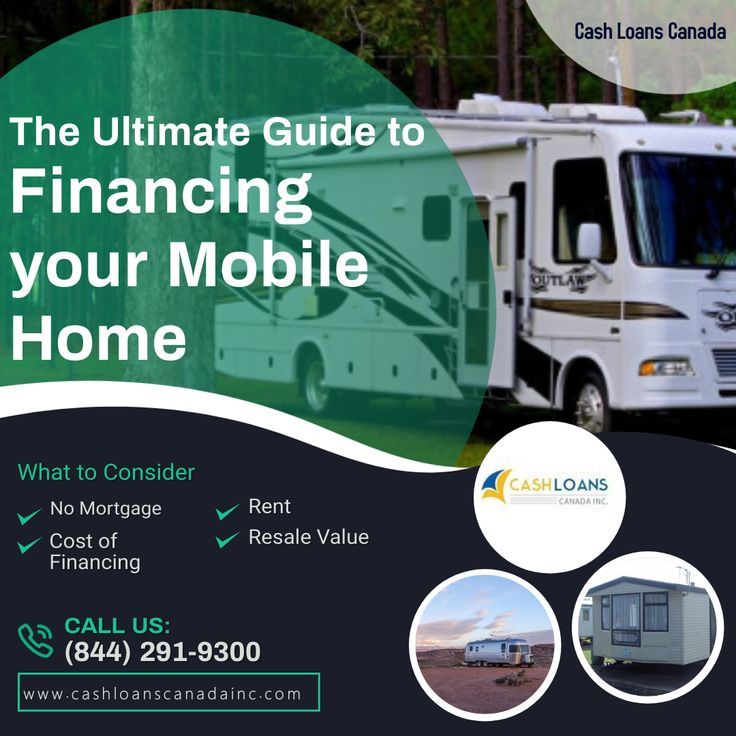Understanding Mobile Home Financing Options

Securing financing for a mobile home involves navigating several options, each with its own set of advantages and disadvantages. Understanding the differences between these options is crucial for making an informed decision that aligns with your financial situation and goals. This section will clarify the key distinctions in financing approaches and lender types.
Traditional Mortgages versus Mobile Home Loans, How to get financing for a mobile home
Traditional mortgages, typically used for site-built homes, often come with stricter lending requirements and higher down payment expectations. Mobile home loans, conversely, are specifically designed for manufactured homes and may offer more flexible terms, though interest rates can vary. A key difference lies in the collateral: a traditional mortgage uses the land and house as collateral, while a mobile home loan may use only the mobile home itself, particularly if it’s not permanently affixed to land owned by the borrower. This can impact loan amounts and approval processes.
Types of Lenders for Mobile Home Financing
Several types of lenders offer financing for mobile home purchases. Banks and credit unions often provide competitive rates and loan terms, but may have stricter qualification criteria. Specialized lenders, on the other hand, focus exclusively on mobile home financing and may be more willing to work with borrowers who have less-than-perfect credit. Finally, some mobile home dealers offer in-house financing, which can streamline the purchase process, though interest rates may be higher.
Interest Rates and Loan Terms Comparison
Interest rates and loan terms for mobile home financing vary significantly depending on several factors including the borrower’s credit score, the loan-to-value ratio (LTV), the type of lender, and prevailing market conditions. Generally, borrowers with higher credit scores and lower LTVs will qualify for lower interest rates and more favorable loan terms. Specialized lenders may offer slightly higher rates to compensate for higher risk, while banks and credit unions may provide more competitive rates but demand more stringent qualifications. Loan terms typically range from 10 to 20 years, with longer terms resulting in lower monthly payments but higher overall interest paid.
Mobile Home Loan Comparison Table
| Loan Type | Down Payment Requirement | Typical Interest Rate Range | Loan Duration (Years) |
|---|---|---|---|
| Chattel Loan (for mobile home only) | 10-20% | 6-12% | 10-15 |
| Real Estate Loan (for land and home) | 15-25% | 5-10% | 15-30 |
| Dealer Financing | Variable, often higher | 8-15% | 10-15 |
| Bank/Credit Union Loan | 10-20% | 6-10% | 15-20 |
*Note: Interest rate ranges are estimates and can vary widely based on individual circumstances and prevailing market conditions. It’s crucial to obtain personalized quotes from multiple lenders.
Assessing Your Financial Situation for Mobile Home Financing: How To Get Financing For A Mobile Home

Securing financing for a mobile home involves a thorough assessment of your financial standing. Lenders carefully scrutinize several key aspects of your financial health to determine your creditworthiness and ability to repay the loan. Understanding these factors is crucial for a successful application.
Lenders base their decisions on a combination of factors, primarily focusing on your creditworthiness and demonstrated ability to manage debt. A strong financial profile significantly increases your chances of approval and helps you secure more favorable loan terms, such as a lower interest rate.
Key Financial Factors Considered by Lenders
Lenders primarily assess three key financial factors: your credit score, your income, and your debt-to-income ratio (DTI). A high credit score demonstrates responsible financial behavior, while a stable income and a manageable DTI ratio showcase your ability to meet your financial obligations. A low DTI indicates that your existing debt payments consume a relatively small portion of your income, leaving sufficient funds to cover a new mobile home loan.
The Importance of a Strong Credit History
A strong credit history is paramount in obtaining favorable loan terms. A higher credit score often translates to lower interest rates, potentially saving you thousands of dollars over the life of the loan. Conversely, a poor credit history may result in loan denial or significantly higher interest rates, making the loan less affordable. For example, a borrower with a credit score above 750 might qualify for an interest rate of 5%, while a borrower with a score below 600 might face an interest rate exceeding 10%, substantially increasing their monthly payments.
Financial Documents Needed for a Mobile Home Loan Application
Preparing the necessary financial documents beforehand streamlines the application process. Having these documents readily available demonstrates your preparedness and professionalism.
- Proof of Income: Pay stubs from the last two months, W-2 forms, tax returns, or bank statements showing regular deposits.
- Credit Report: Obtain a copy of your credit report from one of the three major credit bureaus (Equifax, Experian, and TransUnion).
- Bank Statements: Statements from your checking and savings accounts for the past six months, showcasing your financial activity and available funds.
- Debt Information: A list of all your current debts, including balances, minimum payments, and interest rates. This helps lenders calculate your DTI ratio.
- Down Payment Proof: Documentation showing the source and amount of your down payment, such as bank statements, investment account statements, or a gift letter if applicable.
Tips on Improving Credit Scores Before Applying for a Loan
Improving your credit score before applying for a loan can significantly impact your chances of approval and the interest rate you receive.
- Pay Bills on Time: Consistent on-time payments are crucial for a good credit score. Even one missed payment can negatively impact your score.
- Reduce Debt: Lowering your debt-to-income ratio demonstrates improved financial management. Consider paying down high-interest debt first.
- Monitor Your Credit Report: Regularly check your credit report for any errors or fraudulent activity. Dispute any inaccuracies promptly.
- Limit New Credit Applications: Applying for multiple credit accounts in a short period can lower your score. Space out your applications.
Alternative Financing Options for Mobile Homes

Securing financing for a mobile home can sometimes present unique challenges. While traditional mortgages are an option, exploring alternative financing routes can broaden your possibilities and potentially lead to a more favorable outcome. Understanding these alternatives is crucial for making an informed decision.
Seller Financing and Owner Financing for Mobile Homes
Seller financing, also known as owner financing, is an arrangement where the seller of the mobile home acts as the lender. Instead of obtaining a loan from a bank or credit union, you make payments directly to the seller. This option can be particularly beneficial if you have less-than-perfect credit or struggle to qualify for a traditional loan.
Benefits of Seller Financing include potentially lower interest rates compared to traditional loans, a simplified application process, and the ability to negotiate terms more flexibly. However, drawbacks include the potential for higher risk for the buyer if the seller isn’t a reputable party, and the lack of consumer protections often associated with regulated lending institutions. Furthermore, seller financing might limit your ability to refinance later or take advantage of potential tax benefits associated with traditional mortgages.
Personal Loans for Mobile Home Financing
A personal loan can serve as an alternative funding source for purchasing a mobile home. These loans are unsecured, meaning they don’t require collateral like a down payment on a traditional mortgage. This can be advantageous for those with limited savings or assets.
The advantages of personal loans for mobile home financing include faster approval times compared to traditional mortgages, and the potential for lower interest rates than some credit cards. The disadvantages include higher interest rates than mortgages in most cases, and the loan amount may be limited depending on your creditworthiness and the lender’s policies. Since personal loans are typically unsecured, a missed payment could significantly impact your credit score.
Government Programs and Grants for Mobile Home Financing
Several government programs and grants may offer assistance with mobile home financing, depending on your location and circumstances. These programs often target low-to-moderate-income individuals or families. Eligibility requirements vary widely, so thorough research is crucial. For example, some states or municipalities may offer subsidized loans or grants specifically designed to assist with affordable housing, which might include mobile homes. It is advisable to contact your local housing authority or a HUD-approved housing counselor to learn about potential programs in your area.
Visual Representation of Financing Options
Imagine a table with three columns: Financing Option, Advantages, and Disadvantages.
The first row would list “Traditional Mortgage” with advantages including potentially lower interest rates over the loan term, established consumer protections, and tax benefits. Disadvantages might include stricter credit requirements, a longer approval process, and the need for a substantial down payment.
The second row would feature “Seller Financing,” with advantages including potentially flexible terms and a simpler application process. Disadvantages include higher risk if the seller is unreliable, and the potential for less consumer protection.
The third row shows “Personal Loan,” listing advantages like faster approval and potentially lower interest rates than credit cards. Disadvantages would include higher interest rates than mortgages, and the lack of collateral meaning higher risk for the lender, translating to higher interest rates for the borrower.
The final row details “Government Programs/Grants,” with advantages being potentially lower interest rates or even grants that don’t need to be repaid. Disadvantages include stringent eligibility requirements and a competitive application process.

Tim Redaksi